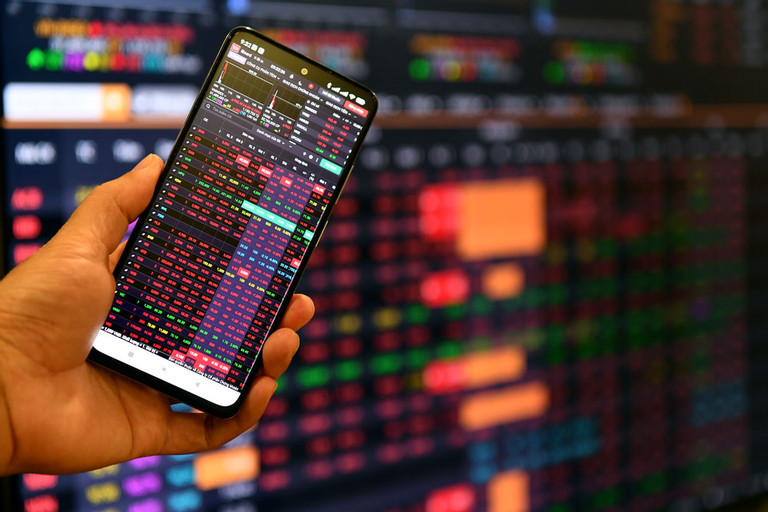
The deposits at securities companies increased for the third consecutive quarter by VND20 trillion over 2022, hitting a 2-year peak.
In theory, the large amount of money in accounts at securities companies means a positive sign for the stock market. But a paradox exists: though the amount of deposits is very high, the market remains quiet and stock prices are increasing slowly.
Why the deposit amount at securities companies is so high, who the depositors are, and how it will impact the stock market are the three questions for now.
Financial reports show that the huge capital is being deposited at securities companies, including VPS, VnDirect, Techcombank Securities, SSI, BSC and Vietcombank Securities.
At VPS, deposits had reached VND16.555 trillion by the end of 2023. Meanwhile, figures had reached VND6.4 trillion at VnDirect Securities and VND5.8 trillion at Vietcombank Securities. SSI has reported a deposit of VND5.3 trillion.
The deposit balance at VPS was equal to 70 percent of the capital mobilized by a small bank such as Saigonbank (SGB). The deposit at Saigonbank was just VND23.5 trillion as of the end of the fourth quarter in 2023.
The re-routing of cash flow into one investment channel can partially reflect the happenings in the financial market and the economic situation and prospects.
Many reasons have been cited to explain the cash flow to the stock market. The bank deposit interest rates have dropped sharply, while the banking sector is pumping more money into the national economy. Meanwhile, the real estate market remains dull.
Where is the money from?
Le Quang Tri from Nhat Viet Securities thinks that investors are keeping big money in their securities accounts because they have realized opportunities in the stock market and have taken steps for a comeback.
However, they still have not disbursed money because they hope the market corrections will cause stock prices to become more reasonable.
Financial institutions all have given positive forecasts about the stock market after Tet holiday, when businesses begin releasing their financial reports for the fourth quarter 2023 and prepare for the shareholders’ meeting season in March and April 2024.
There are many factors that can serve as a firm foundations for the stock market, such as a stable macro economy, low interest rates, and the government’s efforts to foster credit and public investment.
Analysts believe the most difficult period of the corporate bond market is over, while the real estate market is getting warmer as the amended Land Law has been ratified.
The Law on Credit Institutions has also been amended, which is expected to help the banking system become more stable, gradually reducing cross-ownership and back-door lending.
Positive happenings in the world have also caused optimism. HSBC believes that the Asian economy will be better, while the US economy will make a ‘soft landing’. The US Federal Reserve (FED) is expected to cut interest rate in June 2024. And businesses’ incomes will recover.
No breakthrough was made in the stock market in the first three weeks of the new year, but it has been moving up. The liquidity remains low, but it is likely to see a boom later. While the prospects of other investment channels remain dim, injecting money into securities is worth trying.
Bank deposit interest rates are at very low levels, just 3-5 percent per annum for short-term deposits, and 5-6 percent for 12-month or longer-term deposits. The rates are just equal to 40-50 percent of that in the peak period.
Analysts said investors just need to buy the right securities within three trading sessions to be able to make a profit many times higher than the interest from bank deposits. The stock market is more attractive than bank deposits and the quiet real estate market.
Analysts say that the strong cash flow into securities accounts is a good sign which shows the positive prospects of the stock market and high interest by investors. But this also shows a lack of attractive investment channels and poor capital absorption capability of the economy.
Manh Ha